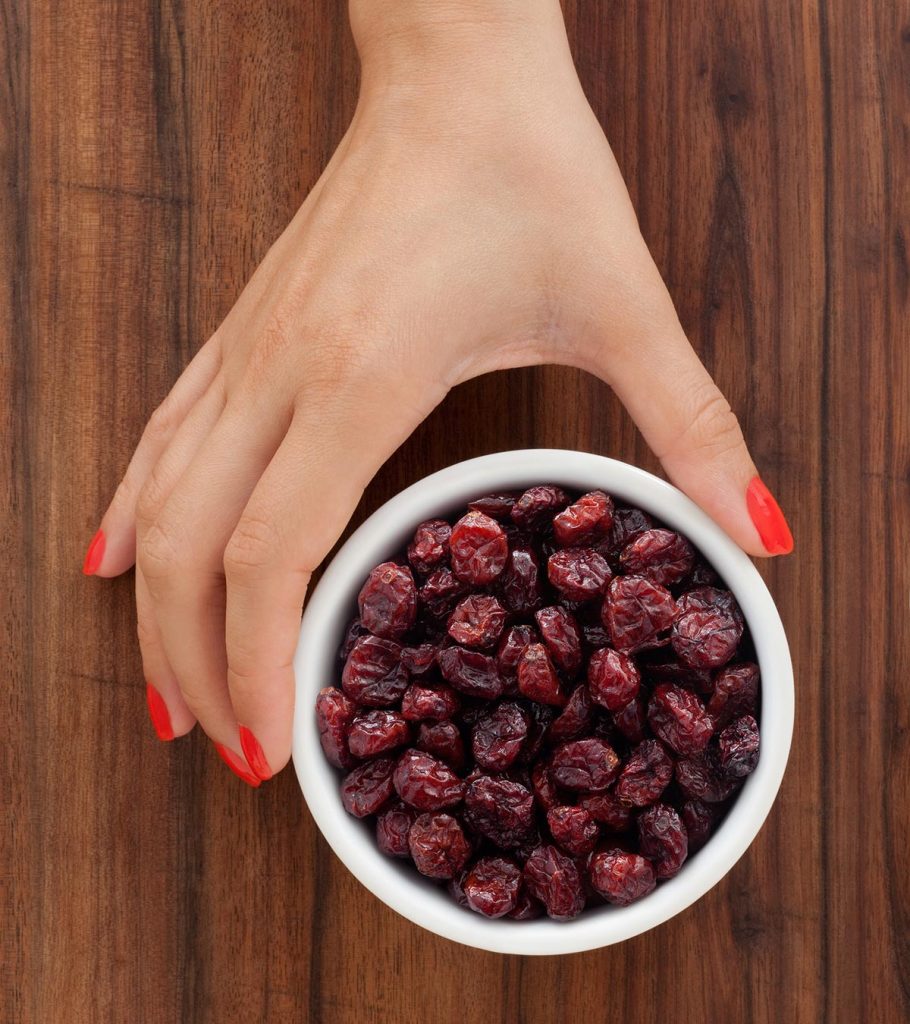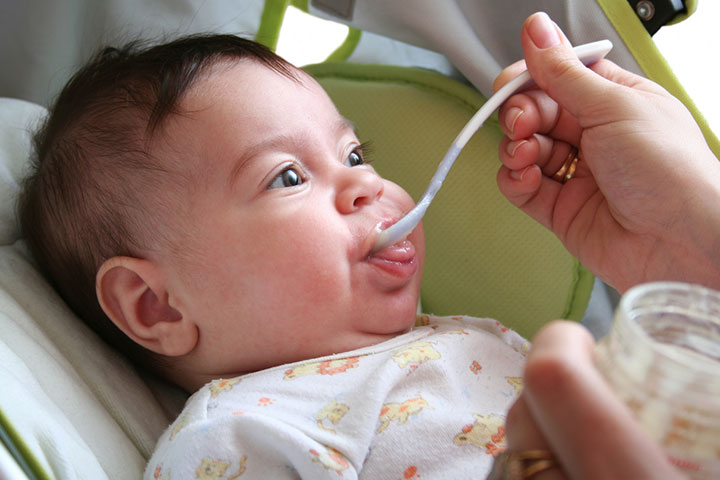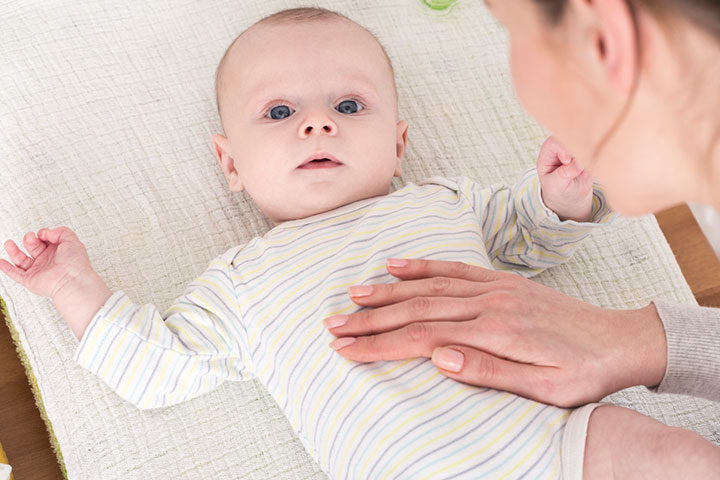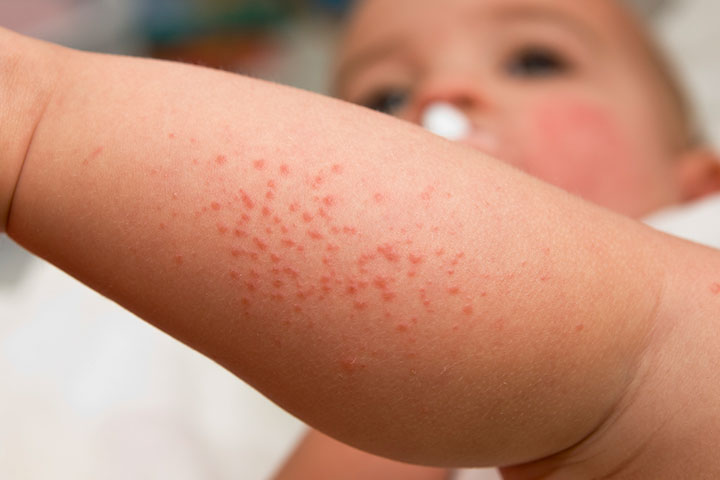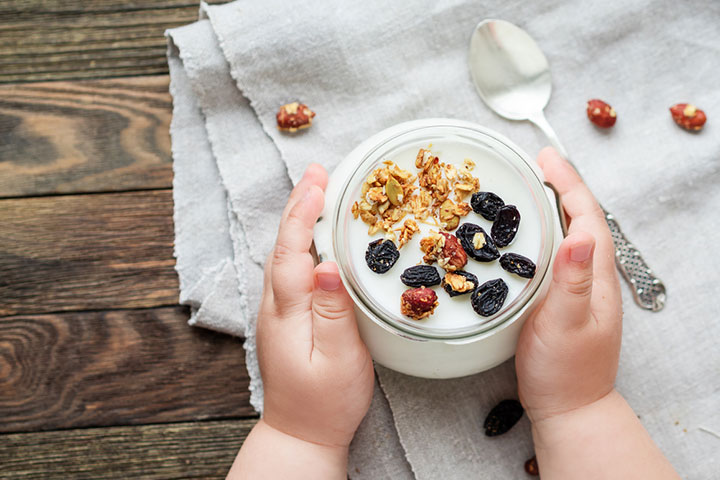Many parents may consider raisins for their babies’ diet. Raisins are dried grapes available in green and black, but you can also find other colors of raisins, including brown, purple, blue, and yellow. Regardless of color, raisins are high in fiber and phytochemicals, such as phenolic compounds, which improve human health (1).
However, the high sugar level of raisins is frequently a subject of concern. A dilemma that may emerge in such a situation is whether you should feed raisins to babies.
Read this post to know about the safety of raisins in babies, their health benefits, potential negative effects, and several methods to incorporate raisins into a baby’s diet.
Are Raisins Safe For Babies?
Raisins are considered safe for babies. But in general, raisins are considered a hypoallergeniciXRelated to products less likely to cause an allergic reaction.dried fruit. Although raisin allergy is rare it does exist (2). Therefore, it is good to consult a doctor before you introduce raisins to your baby.
When Can You Introduce Raisins To Your Baby?
You can introduce cooked and mashed raisins at the age of six months when your baby is ready for solids. Never give a baby whole-raisins. Uncooked raisins can be a potential choking hazard for babies between the ages of six months and one year (3). Therefore, thoroughly cook and mash raisins to soften them before serving it to the baby.
Trista Best, a registered dietitian from Dalton, Georgia, suggests, “Raisins can offer both nutritional benefits and potential concerns to babies. They are a good source of fiber, iron, and antioxidants, promoting healthy digestion and supporting the baby’s overall growth and development. However, due to their small size and sticky texture, raisins pose a choking hazard, especially for infants still learning to chew and swallow solid foods. Cut or mash the raisins into small, manageable pieces to minimize this risk.”
You may introduce whole-raisins once they start finger foods. Begin with cooked raisins, which are easy to eat or soak them in hot water overnight and let the toddler use it as finger food. As your baby progresses to tougher solid foods (after a year), you may include uncooked whole raisins, but ensure to chop raisins into small pieces or soften them when serving them as a part of baby-led weaning. Additionally, even if your toddler can now eat most foods, there is still a risk that your babies older than one year and toddlers under the age of four years might choke on dried and whole raisins. Therefore, you should supervise your child when they’re eating (4).
Nutritional Value Of Raisins
Raisins are nutritious. They are low-medium, energy-boosting foods rich in micronutrients and vitamins such as B6, K, and E (5). They also have considerable amounts of bioactive compoundsiXFound in plants and specific foods possessing antimicrobial activity and helpful in the management of heart problems and other diseases such as flavonoids, phytoestrogens, and resveratrol (6).
Below is the approximate nutritional composition of 100 grams of raisins, along with the recommended amounts of nutrients on a per-day basis (7) (8).
| Name | Amount | RDA |
|---|---|---|
| Water | 15.79g | – |
| Energy | 308Kcal | – |
| Carbohydrate, by difference | 82.8g | – |
| Fiber, total dietary | 5.3g | – |
| Sugars, total including NLEA | 72.56g | – |
| Calcium, Ca | 9mg | 270mg (7-12 months) |
| Magnesium, Mg | 4mg | 75mg (7-12 months) |
| Phosphorus, P | 8mg | 275mg (7-12 months) |
| Potassium, K | 49mg | 700mg (7-12 months) |
| Sodium, Na | 5mg | 200mg (7-12 months) |
| Choline, total | 8.3mg | – |
| Carotene, beta | 27µg | – |
| Lutein + zeaxanthin | 138µg | – |
| Vitamin E (alpha-tocopherol) | 2.1mg | 4mg |
| Vitamin K (phylloquinone) | 7.6µg | 10µg |
Sources: U.S. Department of Agriculture and World Health Organization
Health Benefits Of Raisins For Babies
According to the National Health and Nutrition Examination Survey 2001–2012, consumption is associated with better nutrient intake, diet quality, a lowered risk of obesity, and metabolic syndromeiXA combination of health conditions that cause cardiovascular issues, stroke, and diabetes. (6). These benefits are appealing for babies in the long run. Below are some benefits that are worth a check.
- Digestive health: Raisins have soluble and insoluble fiber. The insoluble fiber helps in keeping the bowel movement smooth, thus helping prevent constipation. Therefore, babies can be given mashed raisins if they have constipation (9). You can also prepare raisin water to address constipation in babies older than six months. Soak 10-20 raisins overnight in a cup or bowl filled with clean water. In the morning, grind them well in a blender with a little water. Strain the mix to remove any chunks, and feed the juice using a teaspoon to your baby on an empty stomach.
- Gut microbiota: Healthy gut ensures proper growth and development of the babies. Raisins have tartaric acid and prebiotics, such as inulin. Some babies can also get diarrhea from inulin (10). A study published in the Nutrition Journal showed that the dietary fiber and phytochemicals present in raisins could potentially help in altering the gut microbiotaiXThe population of microorganisms inside the gastrointestinal tract. and promote good health (11). However, more clinical studies are required to reaffirm the findings.
- Heart health: The intake of raisins, in the long run, could help in lowering the blood pressure. The presence of considerable amounts of potassium, fiber, and bioactive compounds such as phenols and tannins are considered responsible for the effect (11). However, more in-depth clinical trials are still required.
- Oral health: Raisins are often believed to cause poor oral health due to their gummy and sticky texture. However, some studies suggest the contrary (12). A study conducted by the U.S. Department of Food and Nutrition demonstrated that eating raisins may protect against cavities due to its antimicrobial properties.
Raisins contain phytochemicals and plant antioxidants that could possibly help suppress the growth of bacteria that causes dental cavities. Also, the phytochemicals found in raisins could prevent harmful bacteria from sticking to the surface of teeth. This reduces the chances of cavities (13).
- Overall health: Raisins contain several phytochemicals and phytoestrogens that have antioxidant effects. High amounts of antioxidants found in raisins help fight the free radical damage and thus help in fighting chronic illnesses (12). Besides, raisins are rich in boron that can possibly help in the maintenance of bone health (14). Some anecdotal evidence suggests that raisins can increase the hemoglobin content and can also reduce acidity. However, studies to validate these claims are sparse.
In spite of the benefits, do not overfeed raisins to your baby. It might lead to some side-effects.
Health Risks Of Raisins For Babies
- Allergy:If your baby is allergic to mold, then they have a higher chance of having raisin allergy (2). The common signs of raisin allergy are a runny nose, watery eyes, diarrhea, vomiting, nausea, skin rashes, eczema, and hives. However, in some serious cases, raisin allergy could also cause a change in the heartbeat, labored breathing, wheezing, chest tightness, and lightheadedness. In case you observe any of these signs, immediately discontinue feeding raisins or any product containing raisins to your baby and seek prompt medical attention.
- Gastrointestinal issues: Consuming too many raisins might increase the intake of total soluble fiber. Too much fiber can cause gastrointestinal issues, such as cramps, gas, and bloating. Some babies might even develop diarrhea. However, raisins, when consumed in moderation, do not cause such problems.
According to Dr. Leah Alexander, a pediatrician from Fairview, New Jersey, “If a baby is breast or formula feeding less or eating smaller amounts of food at meals, they may be eating too many raisins. Also, if stools consistently become loose after eating raisins, limiting their consumption frequency is advisable.”
Precautions To Take While Giving Raisins To Your Baby
Follow these measures to avoid any unpleasant experiences to your baby:
- Preferably buy organic raisins from a reputable store.
- Prefer packed raisins since they have an allergy warning. Check for specific warnings such as “the product is manufactured at a unit where nuts are processed.” This will help you stay aware of potential cross-reaction.
- Always wash the raisins.
- When you feed raisins for the first time, give only cooked raisins in small bites and follow a three-day wait rule. This will help you know if your baby is able to eat and digest raisins comfortably.
- Do not introduce any new homemade baby food while introducing raisins. This will help you to know better if raisins are a cause of any discomfort.
- Feed whole-raisins to older babies only while they are seated and still. Do not feed the whole-raisin while the baby is playing, since it can increase the risk of choking.
- Do not give whole-raisins at bedtime. If left unnoticed, it may lead to choking.
- Once your baby starts chewing soft raisins, clean their teeth and mouth properly with a toothbrush.
The following precautions ensure maximum safety and mitigates any adverse effects.
Ways To Include Raisins In Your Baby’s Diet
Raisins are a convenient and portable snack that can be added to your baby’s diet in various ways. Below are some ways that you might try.
- Initially, raisins should ideally be cooked. For cooking, add raisins in boiling water and wait until they swell up and get mushy. After cooking, you can mash the raisins or grind them to make a puree.
- Whether pureed or mashed, raisins can be added to foods that your baby is already consuming. For example, you may add raisin puree to unsweetened Greek yogurt.
- It is best to serve uncooked raisins by chopping them into small pieces and adding them to the baby’s cereal or smoothie. Keep the raisin pieces as tiny as possible to avoid the risk of choking.
Maureen, a mother of one, shares an interesting baby food recipe with raisins. She writes, “When I learned that raisins are high in iron, something that babies need more of after six months, I started adding them to everything! It never occurred to me to incorporate raisins into baby food. This week, I’ve been making a purée (glorified applesauce) of apple and raisin with cinnamon and adding it to rice cereal. Honestly, it tastes better than the sugar-sweetened oatmeal I’ve had! It’s great plain or mix the purée with some organic canned pumpkin or cottage cheese — my bubba loves it (i).”
- Raisins can be added to various bakery foods such as muffins, cookies, cakes, and pastries. Try raisins to reduce the quantity of sugar added in the recipes.
- You can also try giving raisin juice to your baby once in a while. Serve a small quantity of juice as an occasional dessert since raisins are high in simple, natural sugars, glucose, and fructose.
Raisins are sweet and dry fruits that can enhance the beauty and flavor of a dish it gets added to. But when considering raisins for babies, you need to know about certain things such as allergic reactions, choking hazards, and gastrointestinal issues since babies are more sensitive than adults. As long as you are following the necessary precautionary measures, you can safely include raisins for babies to help them gain its many health benefits. However, you may consult your child’s doctor before including it in their diet to know the right amount.
Key Pointers
- Raisins are safe for babies, but they are generally considered a hypoallergenic dried fruit.
- Cooked and mashed raisins can be introduced to babies 6 months or older.
- Raisins help with constipation, promote gut health, and lower blood pressure.
- Some signs of raisin allergy include vomiting, diarrhea, skin rashes, watery eyes, eczema, and hives.
- If your baby shows signs of raisin allergies, consult a doctor.
Learn about the amazing health benefits of raisins for babies! Discover how raisins can contribute to the wholesome growth and development of your precious child.
